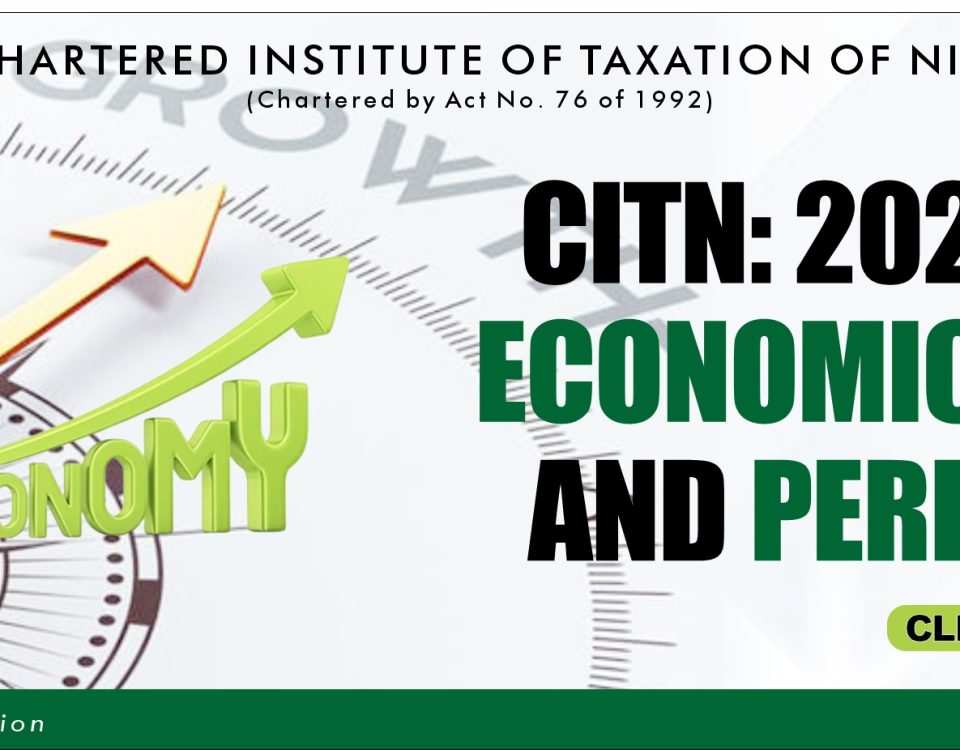- Have any questions?
- 09080888815
- 092918349
- citn@citn.org
FIRST HALF OF 2023 NIGERIA’S MACROECONOMIC PERFORMANCE

GLOBAL DISRUPTION, TAXATION AND DIGITALISATION: IMPLICATIONS FOR SOCIO-ECONOMIC DEVELOPMENT
September 8, 2023
LISTS OF APPLICANTS FOR DIRECT MEMBERSHIP ADMISSION (FIRST, SECOND, THIRD, FOURTH & FIFTH BATCHES) FOR DECEMBER 2023 INDUCTION
September 26, 20231.0 INTRODUCTION
Nigeria, as one of Africa’s largest economies, underwent significant economic changes during the first and second quarters of 2023. These changes were influenced by factors such as the general political election period, adjustments to existing policies, and the introduction of new driving policies. As a result, these macroeconomic policy shifts had notable implications on various economic indicators, which, in turn, affected the consumption patterns of households. These macroeconomic indicators such as GDP growth, inflation rates, and employment levels, play a crucial role in shaping household consumption patterns. As the country navigates through these economic shifts, it becomes essential for policymakers to carefully assess the economic performance in the first and second quarters of the year.
2.0 PROFILE OF NIGERIA’S ECONOMY IN THE FIRST HALF OF 2023
Nigeria’s economy witnessed the same trend of the 4th quarter of 2022 during the first and second quarters of 2023, facing more challenges it faced in 2022. According to the National Bureau of Statistics (2023), inflation rates in June 2023 rose to 22.79%, compared to May 2023’s rate of 22.41%. This indicates a 0.38% increase in inflation from May to June 2023. Year-on-year, the inflation rate was 4.19% higher than in June 2022, which recorded 18.60% inflation. This signifies an inflation rate increase in June 2023 compared to the same period in 2022.
Figure 1: Inflation Rate Jan-June, 2023
The Gross Domestic Product (GDP) experienced real-term growth of 2.31% year-on-year in the first quarter of 2023, which is a decline from the growth rates recorded in the first quarter of 2022 (3.11%) and the fourth quarter of 2022 (3.52%). This reduced growth can be attributed to the adverse effects of a cash crunch experienced during the first quarter of 2023. The Service sector primarily drove the GDP performance during this period, growing by 4.35% and contributing 57.29% to the overall GDP. However, both the agriculture and industry sectors saw less contribution to the GDP compared to the first quarter of 2022, with the agriculture sector experiencing a decline of -0.90%.
Figure 2: GDP Growth Rate for 2022-first quarter of 2023
Fiscal policy performance during the first quarter of 2023 showed that company income tax (CIT) generated N469.01 billion, representing a -37.79% quarter-on-quarter growth from Q4 2022. Local CIT payments accounted for N300.78 billion, while Foreign CIT Payments contributed N168.23 billion in Q1 2023. Value Added Tax (VAT) in Q1 2023 recorded N709.59 billion, showing a 1.75% quarter-on-quarter growth from Q4 2022. Local payments amounted to N436.10 billion, Foreign VAT Payments were N151.13 billion, and import VAT contributed N122.37 billion in Q1 2023. The economic growth observed in 2023 remained relatively fragile despite the efforts made to improve the situation.
3.0 IMPLICATIONS OF THE ECONOMIC PERFORMANCE
Considering this economic analysis, household consumption in Nigeria during the first and second quarters of 2023 has been affected negatively due to the persisting economic challenges and rising inflation rates. With the country facing a cash crunch and reduced GDP growth, households have experienced increased difficulties in maintaining their standard of living. The higher inflation rate affected the price of goods and services, potentially resulting in reduced purchasing power for families. As a consequence, household budgets may have faced more strain, leading to possible cutbacks in spending and a decrease in overall consumption levels.
4.0 CONCLUSION
The conclusion based on the economic analysis of Nigeria in the first half of 2023 is that the country’s economy faced continued challenges during the first and second quarters of the year. Despite witnessing a real-term GDP growth of 2.31% year-on-year, the growth rate declined from previous quarters, and the economic growth was still relatively fragile. The inflation rates increased during this period, putting pressure on household consumption by raising the cost of living and essential goods. The Services sector drove the GDP performance, while the agriculture and industry sectors contributed less to the overall GDP compared to the first quarter of 2022. Additionally, fiscal policy performance showed mixed results, with CIT and VAT revenues experiencing fluctuations.
Overall, the economic environment in 2023 was characterized by uncertainties and difficulties, impacting household consumption and potentially leading to decreased purchasing power for families. Nigeria’s economy faced ongoing challenges, and efforts to stabilize and improve the economic situation were necessary to support household consumption and ensure sustainable growth in the future.
References:
National Bureau of Statistics (June, 2023)


